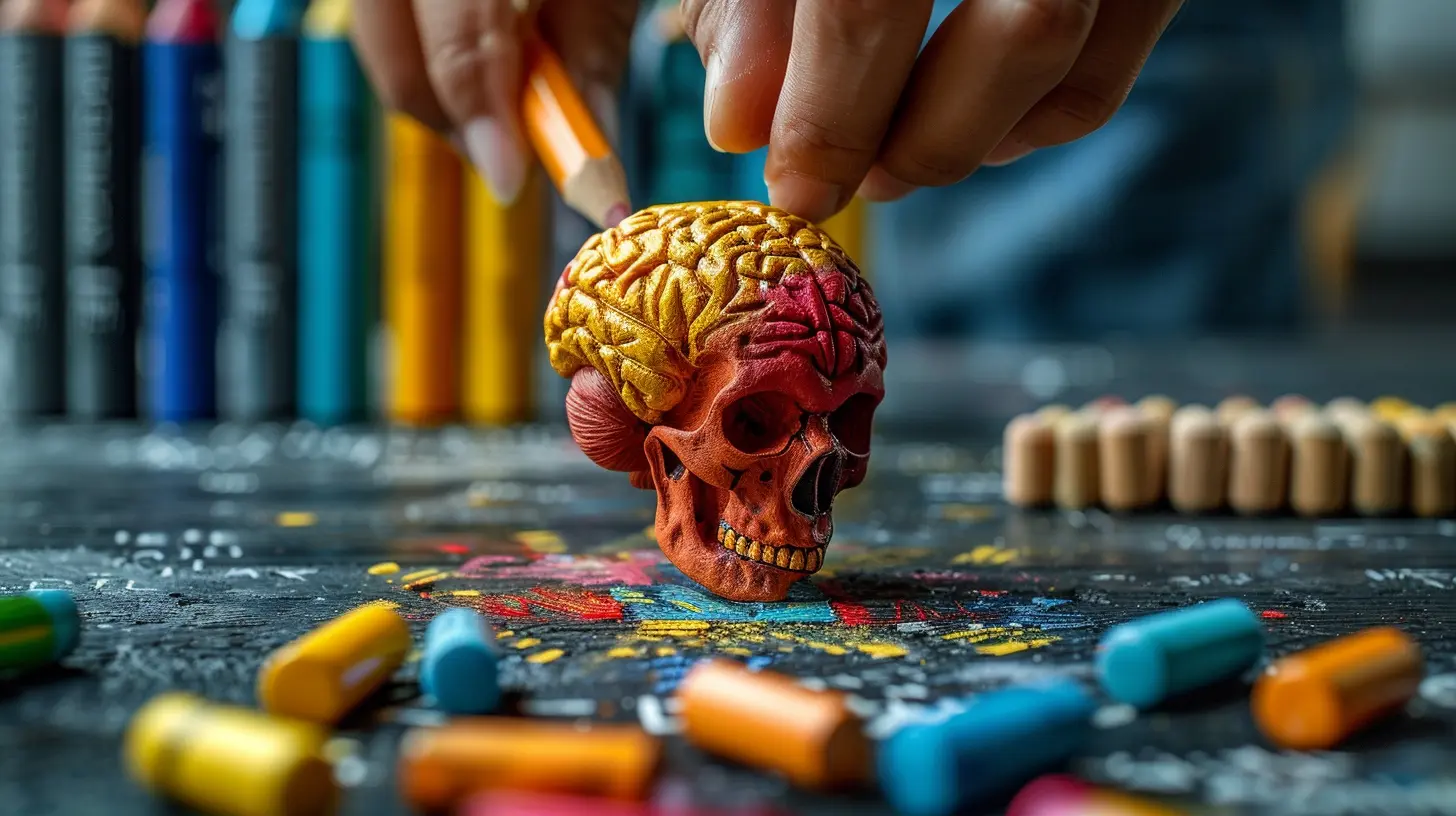The Role of Psychological Testing in Measuring Emotional Intelligence
11 May 2025
When you think of intelligence, what comes to mind? Most people picture someone solving complex math problems or acing a test. But there's another kind of intelligence that’s just as important, if not more so, in our daily lives—Emotional Intelligence (EI). You’ve probably heard the term thrown around a lot, but how is it actually measured? How do psychologists pin down something as fuzzy and subjective as our emotions? That’s where psychological testing steps in.
In this article, we’ll dive deep into the role of psychological testing in measuring emotional intelligence. We’ll explore what emotional intelligence is, why it matters, and the different ways psychologists use tests to measure this elusive trait. By the end, you'll have a clearer understanding of how psychological testing helps us quantify something as intangible as emotions.

What Is Emotional Intelligence?
Before we get into the nitty-gritty of testing, let’s first clarify what emotional intelligence really is. Emotional intelligence, or EI, refers to the ability to understand, manage, and regulate not only your own emotions but also those of others. Think of it as a social superpower that enables you to navigate emotional landscapes like a seasoned sailor through rough seas.Daniel Goleman, the psychologist who popularized the term, breaks emotional intelligence down into five key components:
1. Self-awareness – Recognizing and understanding your own emotions.
2. Self-regulation – Managing and controlling your emotional responses.
3. Motivation – Using emotions to fuel positive action.
4. Empathy – Understanding the emotions of others.
5. Social skills – Effectively managing relationships and navigating social environments.
Now, why does this matter so much? Well, research suggests that people with high emotional intelligence tend to have better relationships, more success at work, and even improved mental health. It’s not just about being smart; it’s about being emotionally smart.

Why Measure Emotional Intelligence?
You might be thinking, "If emotional intelligence is so important, why can’t we just tell if someone has it?" Good question! Here’s the thing: while some aspects of emotional intelligence might be obvious—like how well someone handles stress or interacts with others—other parts can be more subtle and harder to measure.Emotional intelligence isn't just about being "nice" or "friendly." It's a complex set of abilities that can vary greatly from person to person. To fully understand and improve EI, we have to measure it in a reliable, objective way. That’s where psychological testing comes in.
Psychological tests help us quantify emotional intelligence in ways that go beyond gut feelings or casual observations. They can provide insights that we might miss in everyday interactions. Whether it's for personal growth, career development, or even clinical purposes, understanding your emotional intelligence can be a game-changer.

The Different Types of Emotional Intelligence Tests
So, how exactly do psychologists measure emotional intelligence? There’s no one-size-fits-all test for EI. Instead, different tests are designed to measure various components of emotional intelligence. Let’s break down some of the most well-known and widely-used tests.1. The Emotional Quotient Inventory (EQ-i)
The Emotional Quotient Inventory, or EQ-i, is one of the most popular tests for measuring emotional intelligence. Developed by psychologist Reuven Bar-On, it’s often considered the gold standard in EI testing.The EQ-i assesses five broad areas of emotional intelligence:
- Intrapersonal skills (self-awareness and self-expression)
- Interpersonal skills (social awareness and relationship management)
- Stress management (coping with stress and controlling impulses)
- Adaptability (problem-solving and flexibility)
- General mood (optimism and happiness)
The EQ-i is a self-report questionnaire, meaning you answer a series of questions about how you perceive and handle your emotions. While self-report tests have their limitations (more on that later), the EQ-i is widely respected for its comprehensive approach.
2. Mayer-Salovey-Caruso Emotional Intelligence Test (MSCEIT)
If you’re looking for something a little more objective, the Mayer-Salovey-Caruso Emotional Intelligence Test (MSCEIT) might be up your alley. Developed by EI researchers Peter Salovey and John Mayer, this test doesn’t rely on self-reporting. Instead, it measures your ability to solve emotional problems.The MSCEIT assesses emotional intelligence through a series of tasks, such as identifying emotions in facial expressions or understanding how emotions influence decision-making. It’s designed to test your actual emotional abilities rather than just your perceptions of them.
Because it’s performance-based, the MSCEIT is often seen as more objective than self-report tests. However, it can be more difficult to administer and score, making it less commonly used outside of research settings.
3. Trait Emotional Intelligence Questionnaire (TEIQue)
Another widely-used tool is the Trait Emotional Intelligence Questionnaire (TEIQue), which focuses on emotional intelligence as a personality trait rather than a set of skills. The TEIQue measures how individuals tend to experience and express their emotions in everyday situations.This test is based on self-reports and covers four broad areas:
- Well-being (your overall emotional well-being)
- Self-control (how well you manage your emotions and impulses)
- Emotionality (your ability to recognize and express emotions)
- Sociability (how well you navigate social situations)
The TEIQue is useful for understanding how emotional intelligence manifests as a stable part of your personality, rather than as a set of abilities that can be developed or changed over time.

The Strengths and Limitations of Psychological Testing for Emotional Intelligence
Psychological testing is an invaluable tool for measuring emotional intelligence, but it's not without its challenges. Let’s look at some of the strengths and limitations of emotional intelligence tests.Strengths
1. Objective Measurement: Psychological tests give us a more objective way to assess emotional intelligence. Instead of relying on subjective judgments, we can use data to measure EI in a standardized way.2. Self-Awareness: One of the biggest benefits of taking an EI test is gaining self-awareness. By seeing your strengths and weaknesses laid out in front of you, it becomes easier to understand where you might need to improve.
3. Personal and Professional Growth: Emotional intelligence tests can be an invaluable tool for personal development. Many people use their results to work on areas like stress management or empathy, which can lead to better relationships and greater success in their careers.
4. Clinical Applications: In clinical settings, emotional intelligence tests can help psychologists better understand a patient’s emotional functioning. This can be especially useful when diagnosing conditions like depression or anxiety, where emotional regulation plays a key role.
Limitations
1. Self-Report Bias: Many emotional intelligence tests rely on self-reports, which can lead to biased results. People may overestimate or underestimate their abilities based on how they want to see themselves, rather than how they actually are.2. Cultural Differences: Emotional intelligence can manifest differently across cultures, and not all tests take these differences into account. What might be seen as “emotionally intelligent” behavior in one culture might not be valued the same way in another.
3. Complexity of Emotions: Emotions are incredibly complex, and no test can capture the full range of human emotional experience. While psychological tests can give us valuable insights, they’re only one piece of the puzzle when it comes to understanding emotional intelligence.
4. Snapshot in Time: Emotional intelligence isn't necessarily a fixed trait. People’s EI can fluctuate depending on their life circumstances, stress levels, and even their mood on the day they take the test. So, while tests provide useful data, they might not always reflect someone's true emotional abilities.
Improving Your Emotional Intelligence
Now that you know how emotional intelligence is measured, you might be wondering—can you improve it? The answer is a resounding yes! Unlike IQ, which tends to remain relatively stable throughout life, emotional intelligence can be developed and honed over time.Here are a few tips for boosting your EI:
1. Practice Self-Awareness: Start by paying attention to your emotions. How do you feel in different situations? What triggers strong emotional reactions? The more you understand your emotions, the better you’ll be at managing them.
2. Cultivate Empathy: Try to put yourself in others' shoes. How might they be feeling? What are their needs and concerns? Practicing empathy can help you better understand and connect with others.
3. Work on Communication Skills: Good communication is key to emotional intelligence. Learn to express your emotions clearly and constructively, and be an active listener when others are speaking.
4. Manage Stress: Stress can cloud our judgment and make it harder to regulate emotions. Find healthy ways to cope with stress, whether it’s through exercise, mindfulness, or simply taking deep breaths.
Conclusion
Emotional intelligence plays a crucial role in our personal and professional lives. While it might seem like a nebulous concept, psychological testing gives us a way to measure and understand it. Whether you’re taking a self-report test like the EQ-i or a performance-based test like the MSCEIT, these tools can provide valuable insights into your emotional abilities.But remember, while EI tests are helpful, they’re not the be-all and end-all. Emotional intelligence is a dynamic, multifaceted trait that can be nurtured and developed over time. So, whether you're looking to improve your relationships, ace that job interview, or just become more emotionally self-aware, you have the power to enhance your emotional intelligence.
all images in this post were generated using AI tools
Category:
Psychological TestingAuthor:

Ember Forbes
Discussion
rate this article
3 comments
Aiden Simon
This article effectively highlights the importance of psychological testing in assessing emotional intelligence. It sheds light on how these evaluations can provide valuable insights into our emotional skills, helping individuals enhance their interpersonal relationships and self-awareness. A crucial topic in today's emotionally-driven world!
May 16, 2025 at 2:59 PM

Ember Forbes
Thank you for your insightful comment! I'm glad you found the article emphasizes the value of psychological testing in enhancing emotional intelligence and interpersonal skills.
Simone Ortiz
This article beautifully highlights the vital connection between psychological testing and emotional intelligence. It's refreshing to see the importance of understanding our emotions emphasized so clearly. Such insights can not only enhance self-awareness but also foster deeper connections with others. Thank you for sharing this valuable perspective!
May 14, 2025 at 2:42 PM

Ember Forbes
Thank you for your kind words! I'm glad you found the connection between psychological testing and emotional intelligence meaningful.
Xander McBride
This article highlights a crucial aspect of emotional intelligence assessment. Psychological testing provides valuable insights, but it’s essential to remember that tests are just one piece of the puzzle. Real-world experiences and interpersonal interactions play a significant role in understanding and developing emotional intelligence. Balance is key!
May 13, 2025 at 4:42 PM

Ember Forbes
Thank you for your insightful comment! I completely agree that while psychological testing is valuable, real-world experiences and interactions are equally important for a holistic understanding of emotional intelligence. Balance is indeed essential!



